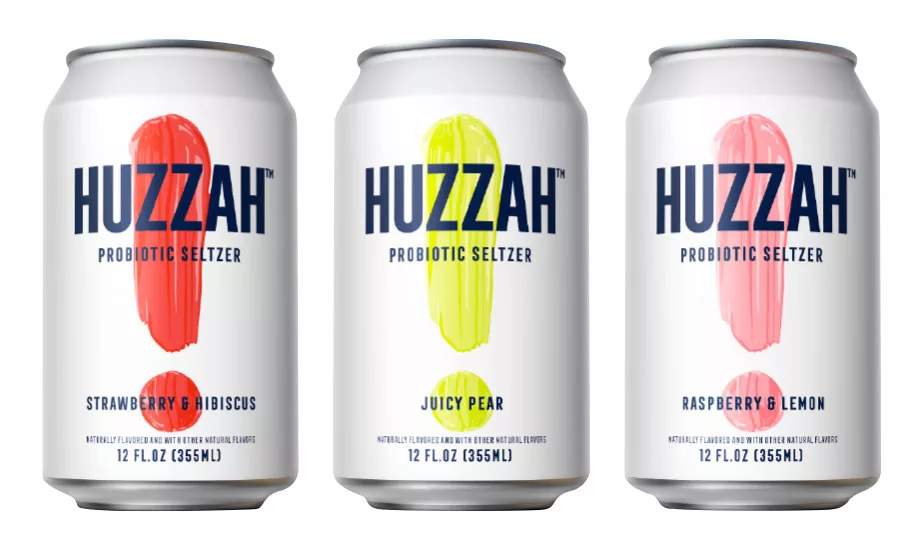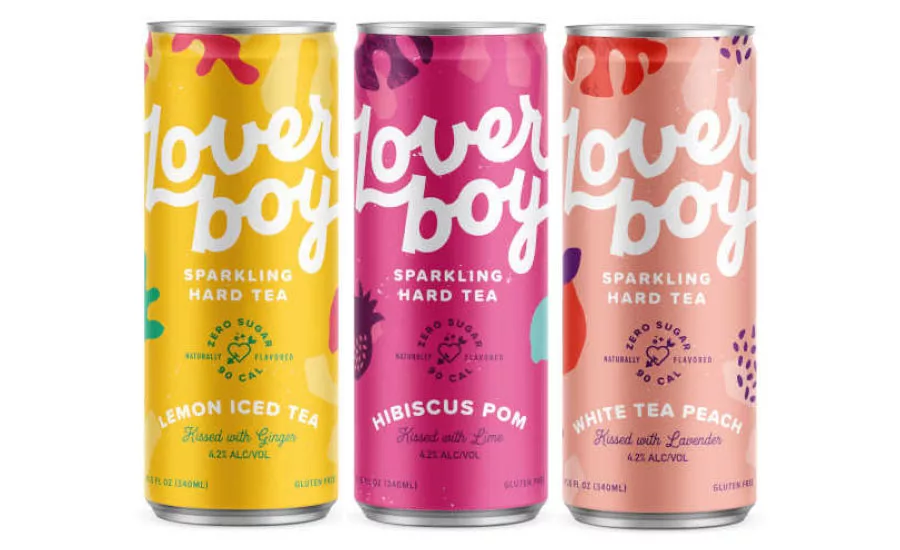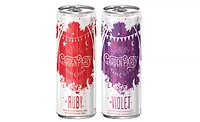2020 Innovations of the Year
Beverage brands launch new products that they hope will become classics





In the 1946 Holiday classic “It’s a Wonderful Life,” George Bailey jubilantly asks soon-to-be wife Mary Hatch if she wants the moon. “You want the moon? Just say the word and I'll throw a lasso around it and pull it down.”
With a plethora of new products hitting store shelves in 2020, many beverage manufacturers are “shooting for the moon” in hopes of giving consumers innovative new products that also will become classics within the beverage industry.
Out of the thousands of new product unveiled, the editors of Beverage Industry chose five beverage companies and brands that are challenging the status quo by broadening their offerings and making their mark in other beverage categories.
Congratulations to the following products selected as 2020 Innovations of the Year:
Coca-Cola Energy
In the non-alcohol beverage category, energy drinks are one of the fastest-growing non-alcohol ready-to-drink (RTD) beverage categories. Long been dominated by Red Bull and Monster Energy, the energy drinks category generated sales of $12.8 billion for the 52 weeks ending June 14 in total U.S. multi-outlets, according to IRI data. The success of this category is encouraging more beverage companies to help diversify the market.
With sights on expanding its portfolio into new categories and discovering an unmet need in the energy category, the Atlanta-based The Coca-Cola Co. unveiled its Coca-Cola Energy lineup in the United States. The energy drink launched in January, after it debuted in Spain and Hungary in 2019, another successful “lift and shift strategy, says Brandan Stickland, Coca-Cola director of the North America Operating Unit.
“Research showed that Americans were open to trying energy drinks but were hesitant because of unfamiliar brands touting unfamiliar ingredients. Coca-Cola Energy was created to appeal to new drinkers by providing an energy drink with great Coca-Cola taste from the brand they know and love,” Strickland says.
With 114 grams of caffeine, about as much caffeine as a cup of coffee, guarana extracts and B vitamins, Coca-Cola Energy is available in 12-ounce slim cans in four varieties: Coca-Cola Energy, Coca-Cola Energy Zero Sugar, Coca-Cola Energy Cherry and Coca-Cola Energy Cherry Zero.
“Consumers wanted an energy drink that tastes more like Coca-Cola than like traditional energy drinks,” Strickland says. “Coca-Cola Energy is our most popular SKU, followed by Coca-Cola Energy Cherry, which has become a fan favorite in recent months. Performance is in line with overall category trends, as full-sugar and zero-sugar energy drinks account for about 60 percent and 40 percent of total category sales, respectively.”
Noting consumers’ positive response to Coca-Cola Energy, the trial rates are above competitive benchmarks, and repeat rates continue to climb month-over-month. Additionally 20 percent of Coca-Cola consumers also are new to the energy drinks category.
“We set out on a mission to make energy drinks more accessible to more people, and we have done just that. We look forward to building on this early success in 2021,” Strickland says.
In March 2021, four packs of Coca-Cola Energy and Coca-Cola Energy Cherry will be available on store shelves.
HUZZAH Probiotic Seltzer
With beer sales flat, many beer companies are immersed in new product development and moving into other categories. Going into 2020, Chicago-based Molson Coors developed HUZZAH Probiotic Seltzer as its first strategic entry into the non-alcohol beverage category.
“We knew we wanted to get into the fast-growing sparkling water segment in a big way. But to win in this segment, you must bring something new to the table, and that’s what we did with HUZZAH,” says Lane Goggin, portfolio manager of non-alcoholic beverages at Molson Coors. “HUZZAH is a full-flavored seltzer with added probiotics to help support a healthy gut, contains 3 grams of sugar and 15 calories or less per can, giving HUZZAH a compelling point-of-difference in the popular seltzer category.”
Expanding beyond the beer aisle and reaching more consumers with better-for-you options means that HUZZAH will not be the last non-alcohol option from Molson-Coors, Goggin shares.
Available in 12-ounce cans in three flavors, Raspberry & Lemon, Juicy Pear, and Strawberry & Hibiscus, HUZZAH is formulated in Fairfield, Calif., with critical support from L.A. Libations, a Los Angeles-based next-generation beverage incubator and accelerator, who is handling distribution in Southern California.
“The product is made from carbonated water, organic tea extract, organic natural flavors and juices and the added probiotic bacillus coagulans,” Goggin says.
Particularly since the COVID-19 pandemic, more than 80 percent of consumers are seeking products with health and wellness attributes, she adds.
“HUZZAH hits the nail on the head for seltzer drinkers who want to trade-up to something with functional benefits, and has added probiotics to support gut health, which is a consumer need that isn’t going away any time soon, Goggin says.
Going into 2021, Molson Coors and L.A. Libations will bring more innovations to the forefront. Danny Stepper, chief executive officer of L.A. Libations, says: “We have big plans to innovate by creating brands that will delight consumers and light up the Molson Coors distribution network. We have some exciting new projects up our sleeves.”
Lemon Perfect
While on a ketogenic diet that recommended each day start with organic lemon water, Yanni Hufnagel, chief executive officer and founder of Lemon Perfect, found the daily routine of cutting and squeezing lemons to be cumbersome and the resulting lemon water to be flavorless.
Additionally, while coaching basketball at the University of Nevada, Reno, Hufnagel noticed his player were drinking bottles of sugar-filled water. These resulting insights led to the creation of Lemon Perfect in 2017.
“Lemon Perfect’s mission is to democratize drinkable wellness by making Lemon Perfect a deliciously refreshing cold-pressed lemon water with zero sugar and is accessible for anyone, anytime, anywhere,” Hufnagel says.
The five-calorie, zero-sugar Lemon Perfect is available in 12-ounce single-serve bottles in four flavors: Just Lemon, Blueberry Acaí, Dragon Fruit Mango and Peach Raspberry. Each bottle of Lemon Perfect is made with six all-natural ingredients: triple-filtered water, organic cold-pressed lemon juice, organic erythritol, organic and natural flavors, vitamin C and organic stevia leaf extract.
In terms of function and formulation, Lemon Perfect is the first squeezed-from-real-fruit, zero-sugar, full-of-flavor, functional, and deliciously refreshing enhanced water on the market, Hufnagel says.
Additionally, each 100 percent recycled plastic bottle contains half of a cold-pressed California-grown organic lemon and delivers hydrating superfruit benefits through the use of flash pasteurization, or high-temperature short-time (HTST) processing, an eco-friendly pasteurization technique that delivers a shelf-stable product with the functional benefits of freshly squeezed lemons, the company says.
Sales of the Non-GMO Project Verified waters are doing well. Between February and July 2020, Lemon Perfect has seen an 809 percent increase in sales and secured partnerships with new direct-store-delivery distributors: Big Geyser, Classic, John Lenore, Dana and B&E Juice. The functional waters are available in more than 3,000 retailers nationwide.
Lemon Perfect has two new flavors in the pipeline for release in 2021: Pineapple Coconut and Strawberry Passionfruit. “Finally, water isn’t boring anymore,” Hufnagel enthuses.
Loverboy Sparkling Hard Tea
Kyle Cooke, star of Bravo TV’s “Summer House,” created New York-based Loverboy Sparkling Hard Tea because he was unhappy with the hangovers brought about by classic flavored malt beverages (FMBs) with their high sugar content and high calories. After Cooke and his house members switched to hard seltzers, they were unimpressed with the bland taste and boring branding, he says.
After two a-ha moments, Cooke questioned what would happen if he took the best from FMBs and hard seltzers and combined them into one progressive adult beverage.
“This was my first ‘a ha’ moment,” Cooke explains. “What if there was a hip brand that offered an adult beverage that tasted amazing, but didn’t give you gnarly hangovers from sugar and cheap ingredients? That’s when I had my second ‘a ha’ moment. It was like, why don’t I combine the best parts of hard tea, (the tea, duh), strip away the sugar and add the elements of a hard seltzer that people are gravitating toward; light, refreshing, carbonated beverages with a nutrition label offering transparency.”
In 2018, Cooke began brewing organic tea, carbonating it and adding high-quality ingredients. He eventually achieved a formula with fewer calories and carbs than the leading hard seltzers.
“The finished product: a zero-sugar sparkling hard tea made from organic brewed tea, a touch of juice concentrates, and monk fruit to naturally sweeten it and enhance all of the flavors,” Cooke says.
The 90-calorie, zero sugar sparkling hard tea is a keto-friendly, 4.2 percent alcohol-by-volume (ABV) craft beverage is available in three flavors: Lemon Iced Tea, Hibiscus Pom and White Tea Peach, kissed with a hint of ginger, lime and lavender, respectively.
The innovation engine kept chugging. In spring 2020, Loverboy used the same better-for-you strategy to make a RTD cocktail that is the company’s answer to the Aperol Spritz. The 6 percent ABV spritz is available in three flavors: Blueberry Lemon, Passion Fruit Guava and Mango Peach.
“It’s still light and refreshing despite being a full-in instead of the ingredients being a mystery, our label clearly points out that our flavor comes from actual purées and juices,” Cooke says. “Both our sparkling hard teas and RTD cocktails have a focus on high quality, premium ingredients that you can see and taste because they are real, not just ‘natural.’”
StoneShine
Crossing genres and categories led to the creating of the limited-edition StoneShine. San Diego-based companies, Stone Brewing and JuneShine, collaborated on a new hard kombucha that mixes Stone hops and Masumoto Farm’s stone fruits into JuneShine’s signature hard kombucha formulation.
The new craft malt beverage clocks in at 6 percent alcohol by volume (ABV) and is organic, gluten free, non-GMO and contains antioxidants, vitamins and probiotics, the companies say. Additionally, 5 percent of sales from StoneShine will go to the U.S. Bartenders Guild National Charity Foundation.
“We wanted to break down the barriers between hard kombucha and craft beer by bringing together one of San Diego’s most iconic craft breweries, Stone, with one of San Diego’s fastest growing hard kombucha breweries, JuneShine,” says Forrest Dein, co-founded and chief creative officer of JuneShine. “We wanted to collide two totally different brand worlds in a disruptive way.”
Dan Lamb, chief commercial officer at Stone Brewing, concurs: “We love that JuneShine challenges convention in the same way Stone has. Stone Distributing Co. proudly distributes JuneShine kombucha because we respect their honest approach and we’re thrilled that they chose Stone to cross genres with them. StoneShine was a fun project for us. It demonstrates how similar hard kombucha and craft beer can be, and offers a really unique flavor profile that can’t be found in craft beer collaborations alone.
“It also helped introduce us to some craft beverage drinkers who might not have given Stone a chance otherwise,” Lamb continues. “As we’re all aware, craft drinkers have become especially promiscuous. Combining a hard kombucha with craft beer gave them something really exciting and new to explore.”
Noting that innovation in the craft beer market is needed more than ever, Dein notes that StoneShine shows what’s possible when better-for-you alternative alcohol categories feature full flavor profiles with lower calorie, lower sugar options along with functional benefits like probiotics and antioxidants.
Lamb urges fans to keep an eye out for a healthier IPA: the Stone Features & Benefits IPA.
Looking for a reprint of this article?
From high-res PDFs to custom plaques, order your copy today!





